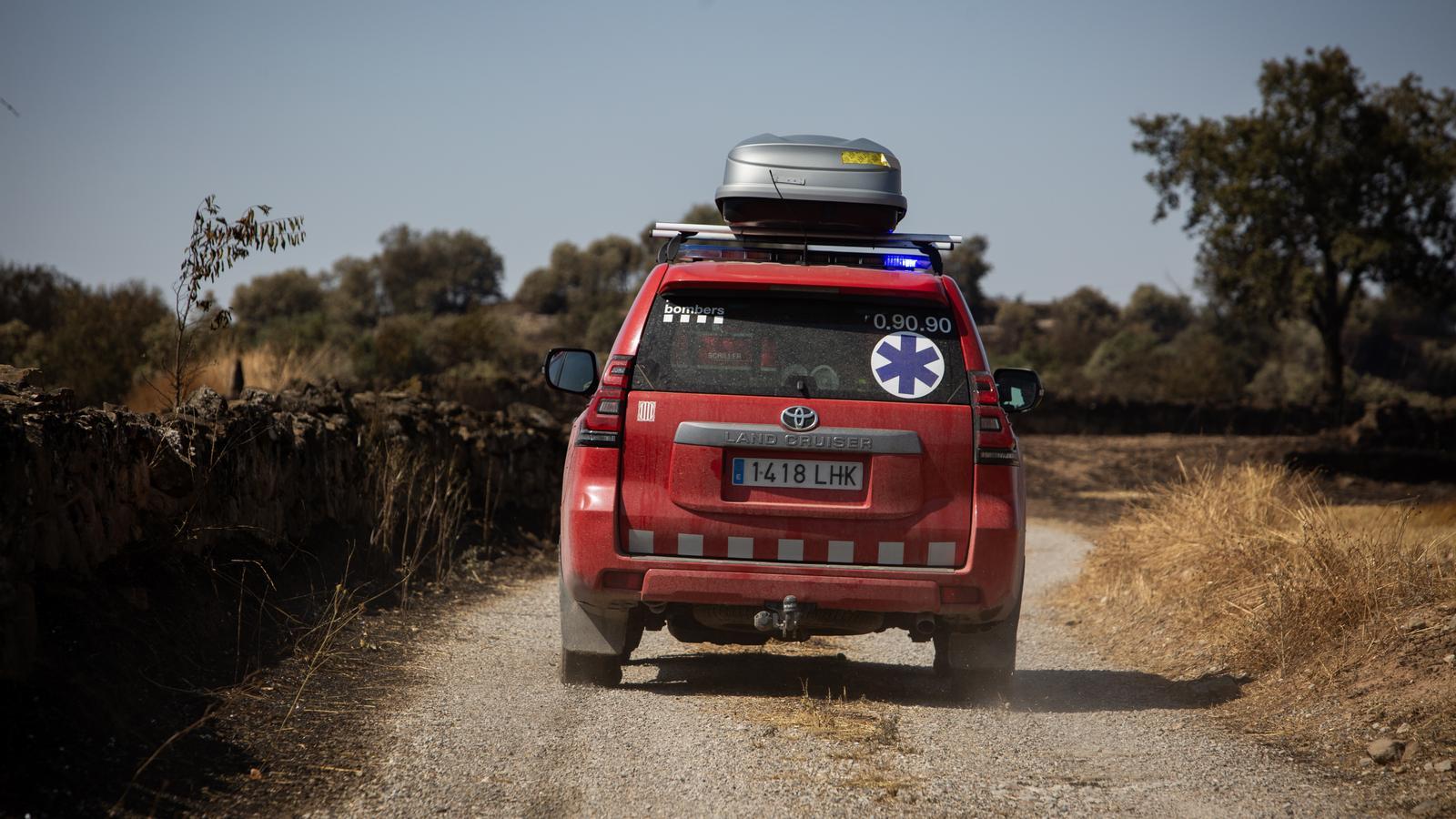"We must be very touched to ask for help": when a firefighter needs a psychologist
A team of officers from the force is on call to attend the events and provide on-site support.


BarcelonaThe death of a colleague during a performance, an incident with multiple victims, an accident involving children, a very long service, or a serious work-related injury. These are some of the points that appear in the well-known Terrible Ten, an American ranking of the main critical incidents that firefighters can experience. This list is used in Catalonia, and if any of the Generalitat's firefighters experience one of these situations, they must go to the force's own psychological support service. This team is unknown to the general public, but is involved in many emergency operations.
This service, called the Crisis Assistance and Intervention Team, has existed since 2008 and has since been coordinated by Anna Subirà, who is also a volunteer firefighter. However, in the last year it has been expanded to include firefighters with psychology degrees who can also lend a hand to their colleagues: up to fourteen members can be dispatched to the scene of the incident to speak with the firefighters who responded and help them if traumatic situations have occurred. They are normally activated by the firefighter commander. "We prioritize group intervention," says Subirà. They are found at the scene or in the parks a few hours later, during which they try to get the firefighters to "explain what happened, how they experienced it" and they also give each other some guidelines to relieve stress. They also decide if they can continue with the shift they are on or if it is better to disconnect.
"As in society, we firefighters have a hard time asking for help. We have to be very touched to ask for it," explains Joan Miró, who is a firefighter and is part of this team of psychologists. Every two months his usual shift changes: he must be on the lookout for critical incidents to provide psychological support to his colleagues. He did it when they go discovering the body of a lifeless child in Valls, and a team member also attended when A firefighter died in the Paüls fire"We don't provide therapy, but rather support," he explains. In other words, "we care for those who normally care for others." Subirà comments that the work groups are a key tool to combat stress, which is why they choose to hold meetings with the entire unit that has worked on that service.
After the meeting at the scene or in the fire station, Subirà explains that they can conduct telephone follow-ups in some cases. In most cases, upon picking up the phone, the firefighter says, "Why are you calling me? I haven't thought about it before." In the most complicated cases, it's difficult to sleep or return to the accident site, and stress increases, with panic attacks, tremors, tachycardia, mental blocks... If the firefighter has required five telephone contacts, they should consider referring them, and on the eighth, they must do so. However, referrals are only made in very specific cases. The cases that most often affect are the death or injury of a colleague, or finding, which is not unusual, an acquaintance affected during a service.
The uniform
And it's important, according to Miró and Subirà, that this initial support be provided by a firefighter. Subirà explains that the two fundamental principles of crisis intervention are immediacy and proximity. The former is achieved by going to the scene or arriving at the station a few hours later. The latter, however, is achieved simply by being firefighters. Miró emphasizes the importance of finding someone in the same uniform who wants to help you after completing a complicated service. Furthermore, they seek equal treatment: the psychologists in this service cannot be commanders, but must be firefighters or officers.
"It's important to speak the same language as them," Miró emphasizes. In other words, this post-action therapy is often based on recalling how it went, what the most critical moment was, and how each member acted. "We moderate this debate, and we have the technical knowledge to do so," he continues. In the midst of the conversation, they try to identify possible indicators of stress and also offer several self-care guidelines, such as taking care of your sleep or trying to disconnect.
